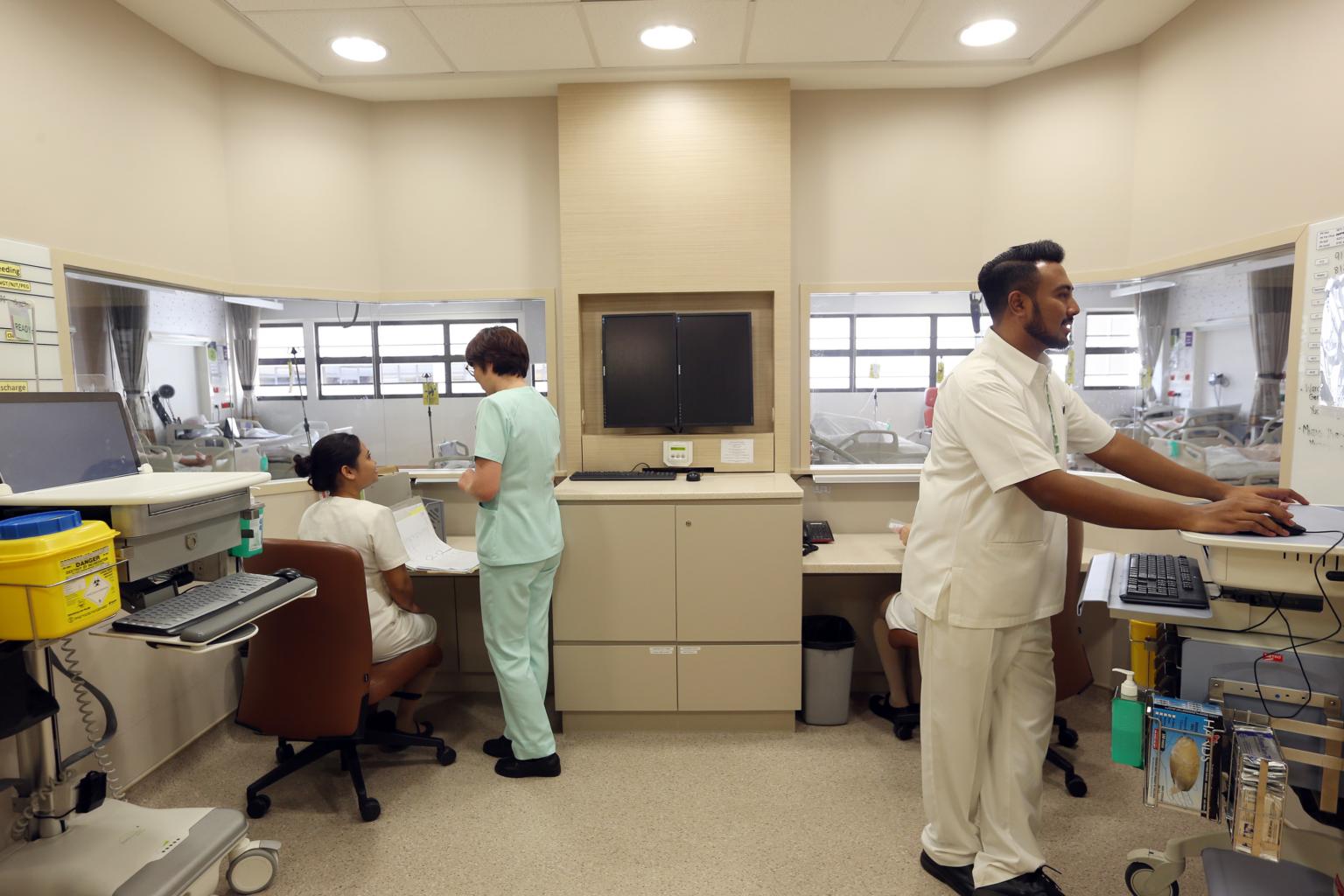Data analytics 'can improve healthcare in Singapore'
Sign up now: Get ST's newsletters delivered to your inbox

Nurses in a ward at Singapore General Hospital (SGH).
PHOTO: ST FILE
SINGAPORE - Data analytics can add immense value to the provision of healthcare, says Ministry of Health (MOH) Permanent Secretary Chan Heng Kee.
Opening the Singapore Healthcare Management Congress at Marina Bay Sands on Tuesday (Aug 15), he said some hospitals are already using data analytics to improve their service to patients.
They identify patients who are likely to require frequent admissions and reach out to offer preventive or early interventions that will keep their conditions stable. This reduces their need to be hospitalised.
Given the advances in computing power, Mr Chan noted: "We can now collect and combine rich healthcare, social and economic data and analyse them for insights."
He also spoke of what he sees as excellent healthcare.
It is not about being treated with the latest drugs, state-of-the-art interventions or specialists. That is not what most patients want, he told an audience of about 1,000 healthcare professionals from the region.
"What is important to them is the outcome they seek and value. To some, this may be about being well enough to live at home, return to work, or study, or enjoy the food or activities they relish."
Giving patients the outcomes they want means finding out what is important to them. Singapore General Hospital (SGH), for one, has been doing this for years, when it comes to total knee replacement.
With that information, it has been able to "better monitor and help each patient's recovery after surgery" and has extended such data collection to other types of surgery, such as for spine, foot and ankle, Mr Chan added.
He said: "If we can help patients achieve their goals, we are providing excellent healthcare, even if the treatments are basic."
Sometimes, giving patients the outcomes they want goes beyond just medical care. Changi General Hospital (CGH) includes other professionals to offer patients "coordinated nursing services, psycho-social support, rehabilitation care and medical follow-ups".
Mr Chan also mentioned that some countries have "peaks of excellence". They have pockets of outstanding institutions, with excellent doctors and treatments. But such care is for only a small number of privileged patients.
For healthcare to be truly excellent, it has to be offered to the entire population on a consistent basis at affordable rates for both the patient and the state.
This is why the Health Ministry is looking at the value of different treatments, with the help of health technology. Some new treatments might cost tens of thousands of dollars, but give little additional benefit.
The ministry has no plans to cut costs or restrict choices blindly, Mr Chan stressed.
Instead, it wants to "identify and spread best practices, narrow unnecessary variances and reduce inefficiencies".
It has already started using healthcare technology to evaluate cost and benefits over time, to identify those that yield the best returns.


